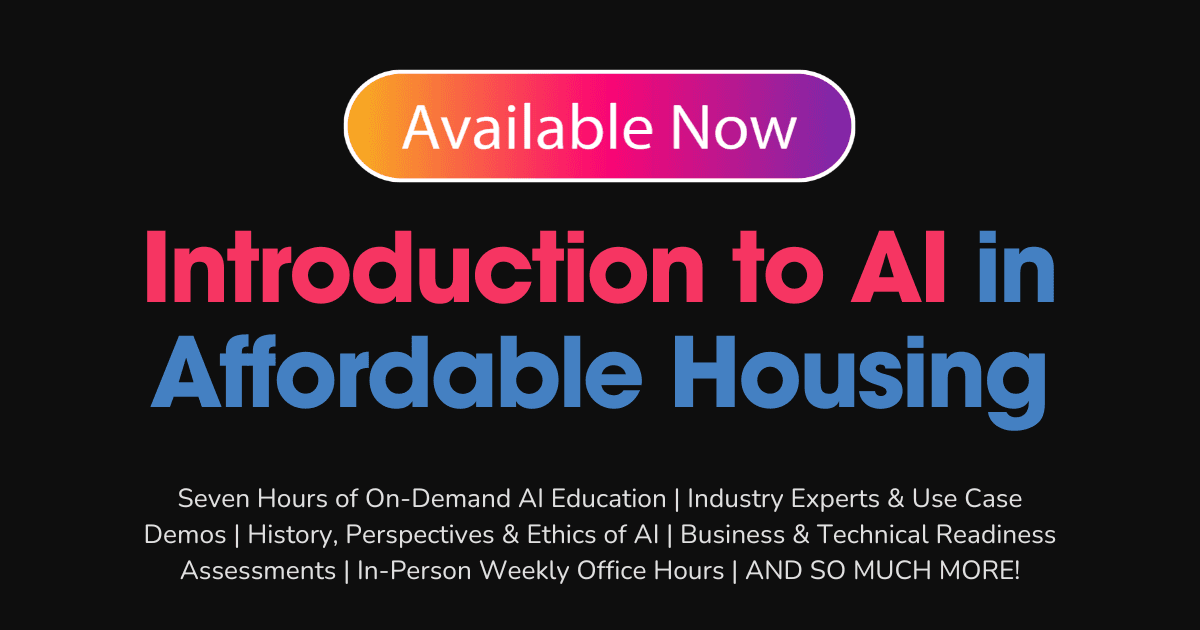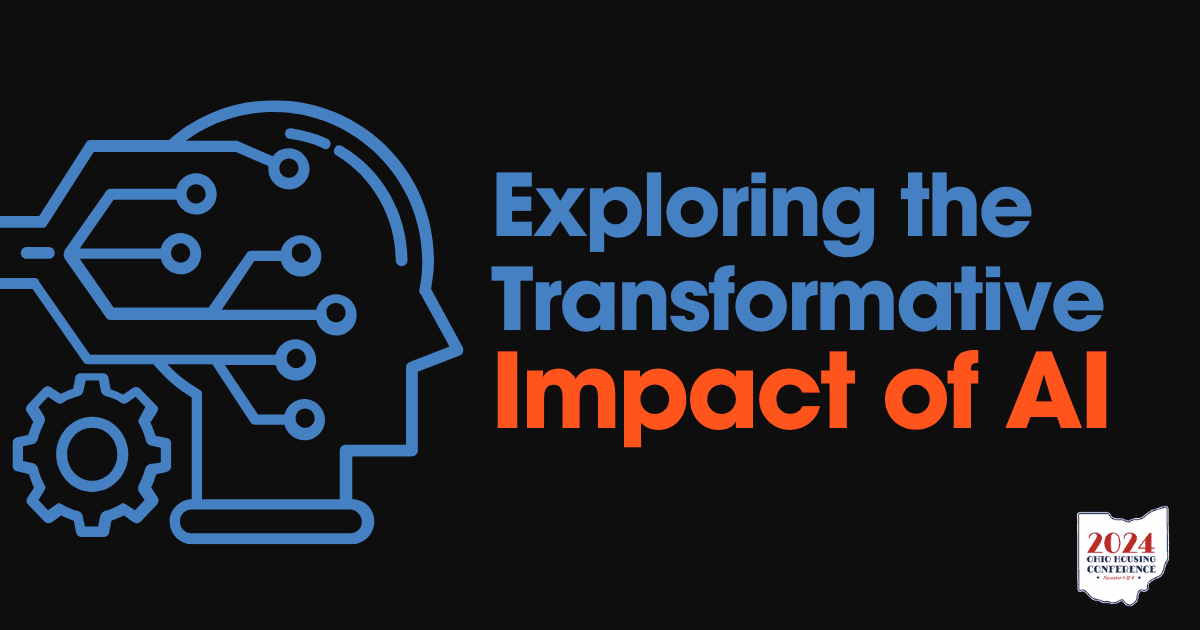November 12, 2024
Recap: 2024 Ohio Housing Conference | Exploring the Transformative Impact of AI
The affordable housing sector is on the brink of a major transformation, and artificial intelligence (AI) is leading the charge. At the 2024 Ohio Housing Conference, industry experts Jane Loechler, Anne Hollander, and Tony DiBlasi explored the growing impact of AI and how it’s reshaping affordable housing operations, investment, and community engagement.
Missed the presentation? Here’s a copy of the slides. A breakdown of the key takeaways on how AI can drive innovation, efficiency, and equity in affordable housing is below:
Why AI Matters Now
The message is clear: the time for AI is now. As Anne pointed out, AI isn’t a futuristic concept—it’s here, and its potential is enormous. According to Deloitte’s 2024 State of AI Enterprise report, 94% of executives believe AI will transform their industries within five years.
In affordable housing, where every dollar and decision counts, AI offers a chance to tackle challenges like increasing supply, cutting costs, and empowering communities. From automating routine processes to unlocking data-driven insights, AI is poised to change how organizations operate.
Practical AI Applications for Affordable Housing
AI isn’t just about technology; it’s about outcomes. The panel highlighted 15 practical ways AI can drive impact today across three key categories:
Increasing Housing Supply: Use AI for zoning and land-use analysis, location identification, and even unit design.
Reducing Costs: Automate accounts payable and receivable, streamline compliance documentation, and improve deal risk analysis.
Empowering Communities: Translate text and speech for multilingual communications, match residents with community services, and improve resident engagement with chatbots.
Organizations don’t need to reinvent the wheel—there are hundreds of AI tools ready to plug into your workflows and deliver results.
Preparing Your Organization for AI
As Anne emphasized, adopting AI isn’t about diving in blindly. It requires education, strategy, and scalability. The panel outlined a high-level AI roadmap that breaks adoption into manageable steps:

2025–2027: The First Wave of AI Transformation
Focus on foundational AI tools like generative AI for task automation and reporting.
Build internal data standards to support scalable AI use.
2027–2030: The Second Wave of AI Transformation
Adopt advanced analytical AI for deeper insights and automation.
Optimize workflows with automated reporting and data integration.
This approach doesn’t just improve efficiency—it delivers measurable impact, with a potential 15–20% increase in operational efficiency during the first wave and another 10–15% boost in the second wave.
Key Considerations for Responsible AI Use
AI is powerful, but it also comes with responsibilities. The panel urged organizations to focus on security, privacy, and transparency when adopting AI tools. That means ensuring resident data is handled responsibly, AI decisions are explainable, and tools are designed with equity in mind.
Ready to Dive In?
Affordable housing professionals don’t need to navigate AI alone. The Affordable Housing Training Academy offers an Introduction to AI in Affordable Housing, a free, on-demand course designed to help you build a strong foundation in AI. The course covers practical applications, ethical considerations, and strategies for implementing AI in your organization.

Learn More and Enroll Today
AI is here, and it’s transforming affordable housing for the better. The question isn’t whether to adopt AI—it’s how to do it in a way that aligns with your organization’s mission and delivers real value to your residents and stakeholders.
Are you ready to take the next step? Let’s build the future of affordable housing together. Book a 15 minute call with our advisors to chat about how affordable housing organizations like yours are exploring and evaluating new opportunities with AI.
